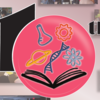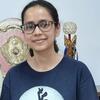
by Apeksha Srivastava
Why are there so many stars in the sky? Is there life on other planets? Why did the dinosaurs disappear? How did we come into existence? Like many other kids, I was curious about a lot of things during my school days. “Science is the answer,” teachers used to tell us, looking into our wonder-filled eyes.
Science: the systematic study of not just the world but the entire universe. In the most basic terms, it involves efforts to make sense of things through experiments and evidence-based explanations. Until the 12th grade in school and even preliminary years of college, most of us are under the impression that science is “rigidly” based on facts and rules. Our course curriculum makes us believe that most of the science is already known. It leads to the common assumption that researchers and scientists work with a predefined set of frameworks. Is that really the case? Or is there a difference between how we think science is practiced and how it is actually practiced?
![]()
I recently read the book Ignorance: How It Drives Science by Stuart Firestein. He wrote that science, in reality, is “probing and poking. Often by accident, a switch is discovered, and the light is lit!” Science is not based on facts but on “ignorance.” It is not the ignorance that represents “indifference to logic” but the one that “leads us to frame better questions” in our quest for better solutions. For ages, the right ignorance has boosted the never-ending circle of science.
If we think about it from a psychological perspective, this ignorance seems to be positively associated with openness to experience, one of the Big Five personality traits. These five factors (openness to experience, conscientiousness, extraversion, agreeableness, neuroticism) are said to give us an idea of our personalities–why we behave and feel in certain ways. People who are more open to experience are considered intellectually curious, creative, and willing to try new ideas. These traits potentially contribute to deciding what “known unknowns” and “unknown unknowns” researchers want to pursue.
Ignorance is not only about coming up with novel questions and answers, but it also “curiously” taps into previously answered questions to explore aspects that could now have possibly different interpretations. It goes both ways! On the one hand, ignorance has the potential to light up a dark room accidentally (e.g., serendipitous discoveries). On the other hand, it can suddenly darken a well-lit room, full of answers, that waits to be lit up once again.
It makes me think about “awareness.” In a broad sense, awareness is the ability to perceive and be conscious of attitudes, events, and things. We can say that it is the opposite of ignorance. If we talk about science, do you think that ignorance is enough? Do we not need the right awareness as well? It is something that does not represent knowledge about facts but rather an understanding of how science works.
Psychologists like Fritz Perls believed that “awareness per se is curative.” With better awareness comes new choices and better opportunities. In terms of scientific studies and research, being aware can make us realize that a single question can have multiple answers. This, in turn, can open doors to bigger mysteries. The right awareness can nudge us to think beyond facts. It can play a key role when we have to choose the right ignorance that drives science. Improper regulation and misuse of ignorance can have harmful consequences on science. Awareness can serve as a tool to overcome these obstacles. It can guide our curiosities in the right direction.
![]()
Let us take an example. Most of us have heard the classic story behind the discovery of gravity. Isaac Newton was sitting under the shade of an apple tree. An apple fell down. It prompted him to think, “why should that apple always descend perpendicularly to the ground?” Do you think that the creation of this question would have been possible if Newton had not observed and perceived that event critically (awareness)? At the same time, would mere awareness have given us the laws of gravity if Newton had not been curious and open to working on revealing this new information (ignorance)?
I feel that both ignorance and awareness are critical for the advancement of science. They seem to work hand in hand, like two sides of the same coin! It is like a never-ending circle, with one trait feeding into the other. It is not limited to practicing science but expands to communicating it as well. Since the public thinks of science as a huge collection of facts, we need to introduce discussions that emphasize the exploratory nature of this field. We need to inform the people that science is about, as Firestein puts it, “finding black cats in dark rooms.” The right science requires a balance between ignorance and awareness.
Education systems worldwide are failing to teach students not just the right ignorance but also the right awareness. It is one of the aspects that make science interesting. Science does not end at finding answers to questions. Instead, it begins there, for each answer can give rise to numerous other questions. We can think of good science as a beautiful interplay between unknowns and knowns, between ignorance and awareness… What do you think?
References
-
FIRESTEIN, S. (2012). Ignorance: how it drives science. New York, Oxford University Press.
-
PALMER, K. A. (2011). Gestalt Therapy in Psychological Practice. Inquiries Journal/Student Pulse [Online], 3.
-
https://www.newscientist.com/article/2170052-newtons-apple-the-real-story/
----------------------------------------------

Twitter: @apeksha_sri
LinkedIn: www.linkedin.com/in/srivastava-apeksha
Blog: https://medium.com/@apeksha.0503





